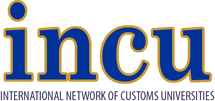
In 2013, the European Union (EU) introduced its own Customs Competency Framework, which aims at harmonising and raising customs performance standards throughout the EU.
The EU Customs Competency Framework is the foundation which sets out a consensus view of the optimal set of knowledge, skills and behaviors required by customs professionals in the EU. The framework consists of a variety of capacity-building tools designed specifically for the Customs profession.
Complementing the EU Customs Competency Framework toolbox is the European Training Curricula for Customs. It provides a comprehensive analysis of the suggested learning topics and outcomes (linked to the designated competency areas) to be achieved by Customs specific training initiatives. As such, it supports improved and more consistent Customs operations and organisational performance across Europe.
An EU Recognition Process for Customs academic study programs has been developed and was rolled out in 2018, which now makes it possible for institutions to apply for EU accreditation of Customs programs at Master and Bachelor levels, and modules within those programs. The EU Customs Certificate of Recognition is a label of excellence for Customs academic programs. This will give a quality label for accredited academic customs programs and quality assurance to both the academic institutions providing the recognised programs and the students of those program, this way further harmonising and raising Customs performance standards throughout the European Customs Union.
Several academic customs program in the EU have already received the EU accreditation.
Detailed information on the accreditation process can be found here.
